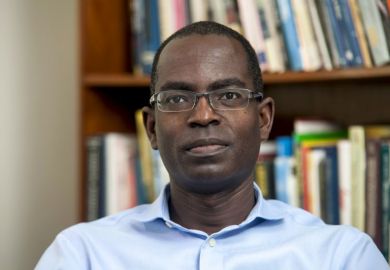The push for research translation and impact is becoming as significant in Africa as it is everywhere else in the world. Countries’ desires to grow “knowledge economies”, meet the United Nations’ Sustainable Development Goals and produce evidence-based policy is concentrating the efforts of everyone, from individual universities to pan-continental organisations, to promote socially relevant research.
There is also an increasing conviction that teaching in Africa’s massifying higher education system must be research-driven, especially at graduate level, if it is to produce the kinds of workers that the future demands. And while discourses and policies do not necessarily guarantee practice, many African countries do appear to be embarking on ambitious expansions of doctoral education and research.
However, there is a chicken-and-egg problem given that Africa currently has a limited number of highly qualified academics to train doctoral students. Moreover, doctoral education in Africa suffers from scarce resources, limited institutional support systems and outdated curricula and pedagogies.
The last of these is a particular problem if doctoral research is to respond to real societal needs and challenges – and, hence, be recast as primarily a problem-solving venture. Doctoral education in many African countries still involves substantial coursework that does not necessarily reflect current developments in society and higher education.
Doctoral graduates need to be able to conceive, plan and conduct high-quality, socially meaningful research. They also need to be able to translate that knowledge. Therefore, they need to be exposed to carefully designed courses, seminars and workshops on scientific thinking, philosophy of science, research methodologies, project development and scientific communication, including publishing. The acquisition of specific – and possibly outdated – field knowledge should be deprioritised.
To overcome the shortages of supervisors and resources, a consortium of doctorate-granting universities could establish national doctoral schools. These would design and offer courses, seminars, and workshops that would help students across whole nations design, plan, conduct and report socially relevant research. Such ventures would also help standardise doctoral education and research across nations.
Universities that have competitive advantages in certain fields could host the national schools in those fields. But scholars from across the consortium members, with significant expertise in their fields, could be engaged in teaching, joint research, supervision and examination. Funding could come not only from consortium members but from government block grants, competitive funding and private foundations.
Building strategic partnerships with expert communities of practice could also support the sustainability of doctoral schools, boosting capacities in teaching, supervision, examination and research. Africa hosts many organisations that are increasingly becoming significant producers and translators of scientific knowledge in their own right. These include the African Union, the UN Economic Commission for Africa, the Association for the Development of Education in Africa, the Association of African Universities, the African Academy of Sciences and the Network of African Science Academies – not to mention the 29 national science academies, the growing number of national young academies, the professional associations, and the regional university councils. These organisations contain many of the best minds in the continent.
However, a study I co-published earlier this year highlights that power imbalances can challenge the success and sustainability of transnational academic collaborations. Mutual benefit and understanding are crucial for partnerships that do not rely excessively on Western institutions. Issues on the African side include lack of skills in research and project development and management, limited or unreliable institutional support, and problems obtaining visas. What is needed is shared governance, dedicated partnership offices, an entrepreneurial mindset, and mechanisms for faculty reward and professional development.
Using digital technology to integrate African capacity in teaching, research and administration could help enormously. The pandemic has already kick-started such efforts, and continental, national and university strategic plans all identify technology integration as pillars of development.
The necessary digital infrastructure and internet connectivity are improving, too. Doctoral candidates across Africa can already attend, in real time, lectures and seminars by faculty from anywhere. These can also be recorded and shared with the participants for further use.
Combined with carefully arranged in-person interactions, such developments can ensure the efficient and effective use of the scarce resources currently available for doctoral provision in Africa.
Teklu Abate Bekele is associate professor of international and comparative education at the American University in Cairo.
POSTSCRIPT:
Print headline: African links can boost PhDs
Register to continue
Why register?
- Registration is free and only takes a moment
- Once registered, you can read 3 articles a month
- Sign up for our newsletter
Subscribe
Or subscribe for unlimited access to:
- Unlimited access to news, views, insights & reviews
- Digital editions
- Digital access to THE’s university and college rankings analysis
Already registered or a current subscriber?








